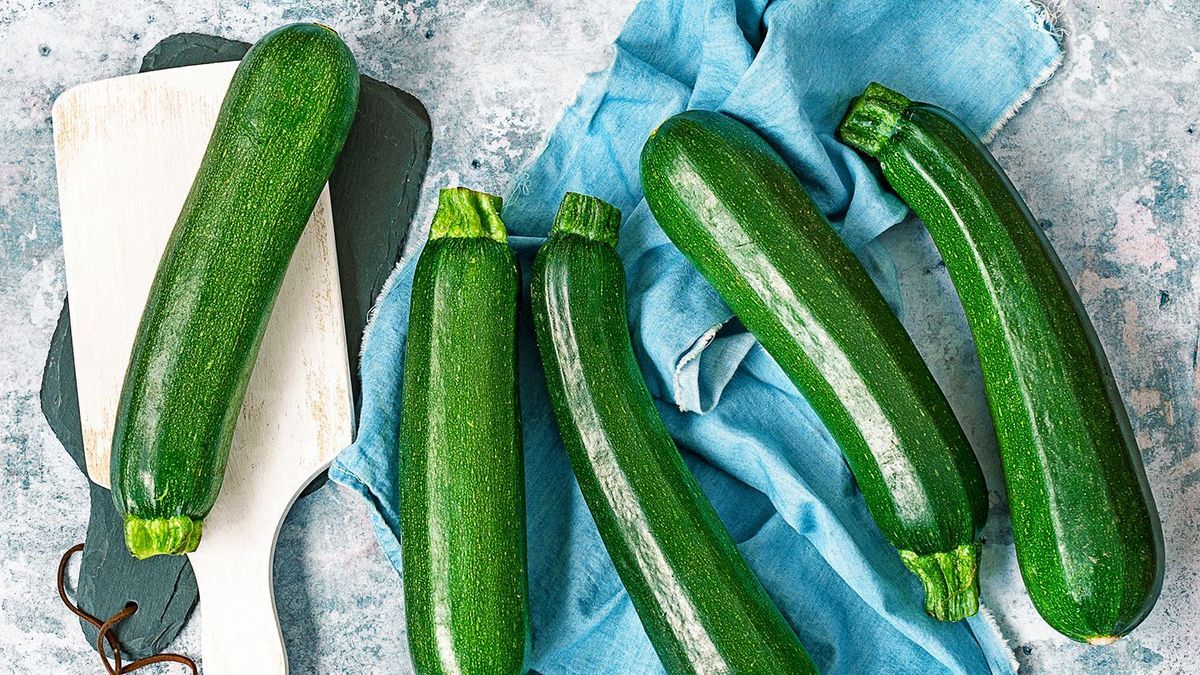
Zucchini isn't just another green vegetable; it's a powerhouse of nutrition and versatility. Ever wondered why this summer squash is a staple in so many kitchens? Zucchini is low in calories but high in essential nutrients like vitamins A and C, potassium, and fiber. Whether you're grilling, baking, or spiralizing it into noodles, this veggie fits seamlessly into countless recipes. Plus, did you know that zucchini flowers are edible too? They add a unique twist to your dishes. From its origins in Central America to its rise in global cuisine, zucchini has an intriguing history worth exploring. Ready to learn more? Let's dive into 25 fascinating facts about this humble yet extraordinary vegetable!
Key Takeaways:
- Zucchini, a versatile fruit, is low in calories, high in nutrients, and can be used in various dishes. It's also celebrated in popular culture, with fun facts like edible flowers and giant sizes.
- Zucchini, a member of the squash family, is not only delicious but also nutritious. It can be used in cooking in many ways, from grilling to baking, and has interesting cultural references and quirky fun facts.
What is Zucchini?
Zucchini, also known as courgette, is a summer squash that belongs to the Cucurbitaceae family. It's a versatile vegetable used in various dishes around the world. Let's dive into some fascinating facts about zucchini.
-
Zucchini is technically a fruit because it comes from a flower and contains seeds.
-
Originating from Central America, zucchini has been cultivated for thousands of years.
-
The word "zucchini" comes from the Italian word "zucchino," which means a small squash.
-
Zucchini plants produce both male and female flowers, with the female flowers developing into the fruit.
-
A single zucchini plant can produce up to 10 pounds of zucchini during the growing season.
Nutritional Benefits of Zucchini
Zucchini is not only delicious but also packed with nutrients. Here are some key nutritional benefits that make zucchini a healthy choice.
-
Zucchini is low in calories, making it an excellent option for weight management.
-
It is rich in vitamins A and C, which are essential for maintaining healthy skin and a strong immune system.
-
Zucchini contains high levels of antioxidants, which help protect the body from free radicals.
-
The vegetable is a good source of dietary fiber, aiding in digestion and promoting gut health.
-
Zucchini is also rich in potassium, which helps regulate blood pressure and supports heart health.
Culinary Uses of Zucchini
Zucchini's mild flavor and tender texture make it a favorite in many kitchens. Here are some popular ways to use zucchini in cooking.
-
Zucchini can be grilled, roasted, steamed, or sautéed, making it a versatile ingredient.
-
It can be spiralized into "zoodles" as a low-carb alternative to pasta.
-
Zucchini bread and muffins are popular baked goods that incorporate this vegetable.
-
Stuffed zucchini boats are a delicious and nutritious meal option.
-
Zucchini can be added to soups, stews, and casseroles for extra flavor and nutrition.
Zucchini in Popular Culture
Zucchini has made its mark not just in kitchens but also in popular culture. Here are some interesting cultural references to zucchini.
-
In the United States, August 8th is celebrated as National Zucchini Day.
-
The town of Obetz, Ohio, hosts an annual Zucchini Festival featuring zucchini-themed events and contests.
-
Zucchini has been featured in various cooking shows and food blogs, highlighting its versatility.
-
The largest zucchini ever recorded weighed over 65 pounds and was grown in the United Kingdom.
-
Zucchini is often used in gardening competitions due to its rapid growth and large size.
Fun Facts About Zucchini
Zucchini has some quirky and fun facts that might surprise you. Here are a few to tickle your curiosity.
-
Zucchini flowers are edible and can be stuffed or fried for a tasty treat.
-
The skin of zucchini is rich in nutrients, so it's best to eat it unpeeled.
-
Zucchini can grow up to a meter in length, but they are usually harvested when they are about 6-8 inches long.
-
There are several varieties of zucchini, including yellow zucchini, which is similar in taste but has a different color.
-
Zucchini is a popular ingredient in ratatouille, a traditional French vegetable stew.
Zucchini: A Veggie Worth Knowing
Zucchini isn't just another green vegetable. Packed with vitamins and minerals, it offers numerous health benefits. From aiding digestion to promoting heart health, this versatile squash deserves a spot in your diet. Plus, it's low in calories and high in fiber, making it perfect for those watching their weight.
Cooking with zucchini is a breeze. Whether you prefer it grilled, sautéed, or baked into zucchini bread, the possibilities are endless. Its mild flavor pairs well with various dishes, adding a nutritious boost without overpowering other ingredients.
Next time you're at the grocery store, grab a few zucchinis. Experiment with new recipes and enjoy the many benefits this humble veggie has to offer. You'll soon see why zucchini is a favorite among health enthusiasts and food lovers alike.
Frequently Asked Questions
Was this page helpful?
Our commitment to delivering trustworthy and engaging content is at the heart of what we do. Each fact on our site is contributed by real users like you, bringing a wealth of diverse insights and information. To ensure the highest standards of accuracy and reliability, our dedicated editors meticulously review each submission. This process guarantees that the facts we share are not only fascinating but also credible. Trust in our commitment to quality and authenticity as you explore and learn with us.


